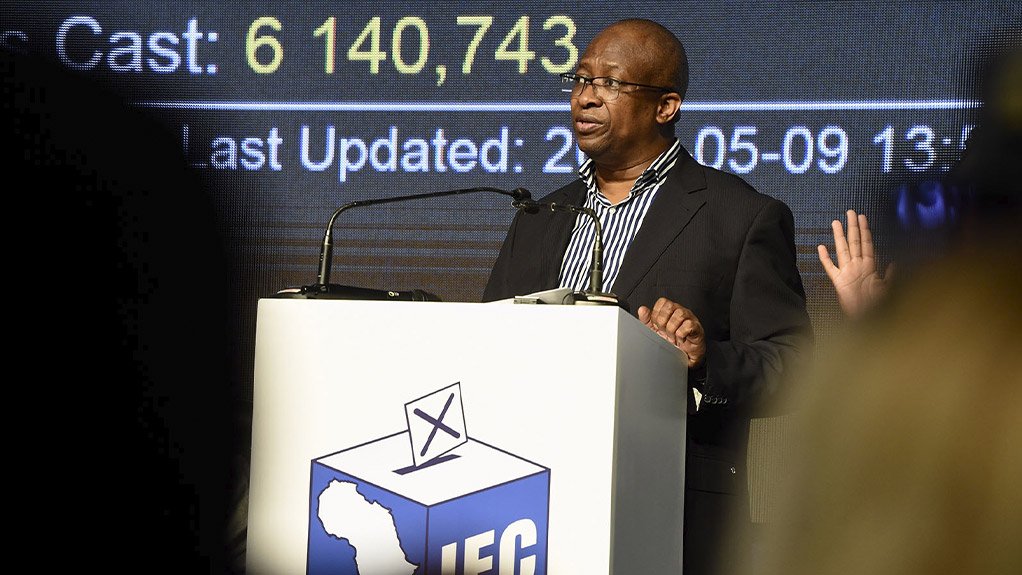Sixteen-million people in South Africa would have been fully vaccinated by the time of the local government elections on 27 October, according to the government's original vaccination schedules, says chief electoral officer Sy Mamabolo.
In the first day of oral submissions to retired deputy chief justice Dikgang Mosekene's inquiry into whether the elections would be free and fair if held during the current pandemic, Mamabolo on Monday said that the Electoral Commission of South Africa (IEC) and party representatives met with the health department to discuss the health concerns around the elections.
"In terms of the plans as they stood, 16-million people would have been vaccinated by 27 October. Maybe that target has changed, but that was the information placed to political parties and the commission on 22 April," he said.
The inquiry was due to hear submissions by scientists on the risk that elections during a pandemic could pose in terms of health.
Moseneke said the constitutional prescripts on regular elections should also be balanced with the right to life and to bodily integrity.
He also asked about the implications of stretching the election over three days instead of the usual one, to which Mamabolo said there were cost and security implications.
The costs included the daily stipend paid to elections staff, and the money paid for the use of buildings or the rental of tents for temporary sites.
He said: "You also have increased storage costs because on special voting day you have to securely store the used ballots, so your storage cost will increase."
He said the secure storage of ballots also posed a risk to the integrity and the credibility of the ballots being compromised.
If election days were to be extended to provide for decongestion, there should also be a system of staggering the arrival of voters by certain categories such as age, the commission heard.
Mamabolo said turnout in by-elections in recent months since the pandemic struck had been comparable to turnouts in by-elections before the pandemic.
"There has not been a marked decline in participation levels. One, it's alive to the fact that a by-election is substantially and materially different from a general election, but it gives you at least a psychological disposition of people participating," he said.
The IEC would conduct a pre-elections study with the Human Sciences Research Council to determine how voters would feel about going out to vote, should the elections go ahead, Mamabolo said.
Moseneke pointed out that a low turnout could damage the credibility of the elections, for example in Algeria, the turnout was so low that the winning party did not have the legitimacy it was hoping to get through the elections.
Mamabolo concluded his submission by saying that the IEC had the duty to technically prepare for an election because of the constitutional requirement for having regular elections, "but that does not amount in the IEC saying that an election cannot be postponed under any circumstances".
He said the commission had asked Moseneke to undertake this inquiry to determine the freeness and the fairness of elections during the Covid-19 pandemic under the constitutional provisions for such, the legal provisions, medical circumstances and the feelings of the parties, as well as the voters about the matter.
Political parties had differed about whether local government elections would be free and fair if it continued on 27 October, with the two biggest parties, the ANC and the DA, saying they were ready to go on.
Smaller parties like the EFF and the UDF said they did not feel like they would be able to campaign freely and fairly under current circumstances.
According to the Constitution, elections must be held by 1 November, and Mamabolo said the only ways to postpone it would be to approach the Constitutional Court directly with a compelling case, or amend the Constitution, which had to be done by Parliament.
Ramaphosa last month announced the 27 October date for the elections, and the inquiry was expected to make its findings before the formal proclamation of the elections before the expiry of the current term of municipal councillors on 2 August.
EMAIL THIS ARTICLE SAVE THIS ARTICLE
To subscribe email subscriptions@creamermedia.co.za or click here
To advertise email advertising@creamermedia.co.za or click here











